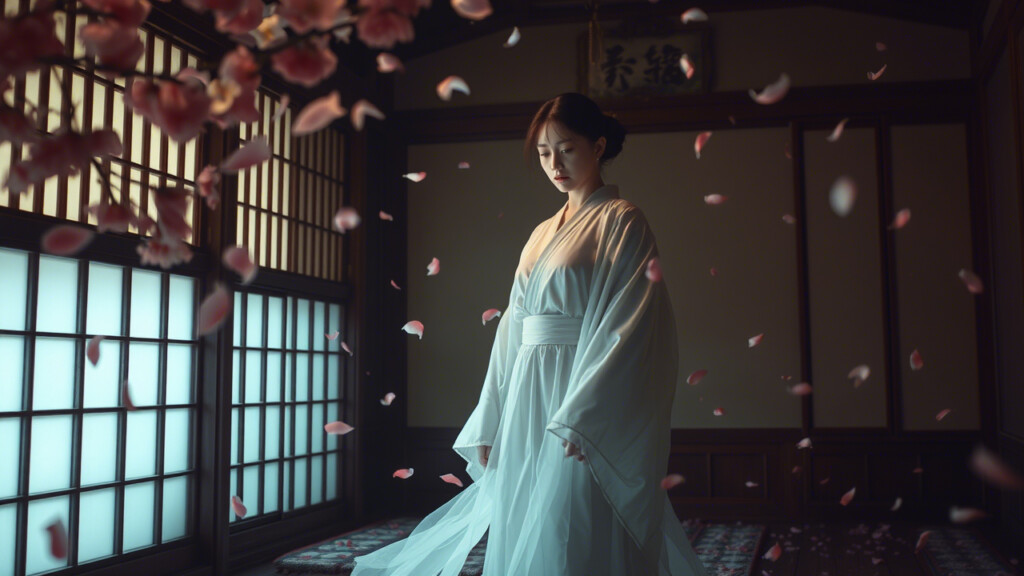Have you ever caught a glimpse of a white shadow flickering in the mirror or seen long hair covering a pale face in a dark corner? Japanese horror movies don’t just give us chills—they leave us haunted by something even scarier than ghosts: resentment. It lingers like a wound that never heals, bleeding through centuries, turning souls into yūrei (幽霊)—the embodiment of injustice and unresolved pain.

The Roots of Resentment: When Death Isn’t the End
In Japanese belief, when someone dies with overwhelming resentment—whether from love, betrayal, jealousy, or injustice—their soul becomes “trapped” between worlds. The tragic story of Oiwa in the legend of yūrei in Japan is a perfect example. Oiwa was betrayed by her husband, poisoned until her face became hideously disfigured. She died in agony, but her soul didn’t vanish—instead, she became a vengeful ghost in Japan, returning to make her betrayer pay.
Another tale is that of Okiku, a servant murdered and thrown into a well. Every night, her spirit continues to count the missing plates, her voice breaking at the number nine—a chilling reminder of injustice left unresolved.
“Boiling Resentment”: When Emotions Become Chains
In Japanese culture, certain emotions can turn a spirit into a vengeful yūrei:
- Kodoku (孤独): Crushing loneliness.
- Munenn (無念): Deep regret over unfinished business.
- Urami (恨み): Burning hatred for those who wronged them.
- Gyakujou (逆上): Rage from betrayal and deceit.
- Shūnen (執念): Unrelenting obsession, an inability to let go.
These emotions keep spirits tied to the living world, unable to move on. In Japanese ghost culture, revenge isn’t just a choice—it’s a duty, a path they can’t escape.
Karma and Retribution: Vengeance or Justice?
The Japanese deeply believe in resentment and spirituality as part of the law of cause and effect (inga ōhō, 因果応報). The wrongful death of a yūrei represents “bad karma” that the wrongdoer must pay for. They aren’t just ghosts seeking revenge—they are the “judges” of the afterlife, forcing the guilty to face the consequences of their sins.
A traitor may kill their lover, but they can’t kill the hatred left behind. And that hatred will come back for them—watching with hollow, unblinking eyes from the shadows.
The Ghostly Woman: A Curse Born from Injustice
Most female ghosts in Japan are women. In feudal society, they were oppressed, silenced, and stripped of power. When betrayed or wronged, they had no way to fight back. Death became their only “escape,” yet even in death, they carried their pain, returning to settle their unfinished business.
The image of the yūrei isn’t just something to fear—it’s a ghostly scream for justice, a silent rebellion against a society that once erased them.
Do yūrei really “love” revenge, or is it simply the only way they can seek justice? Whatever the answer, their stories remain deeply embedded in Japanese culture—reminding us of the power of emotions and the fragile line between life and death.
And if one night, you hear a faint whisper counting in the dark… remember this—some grudges never die.
